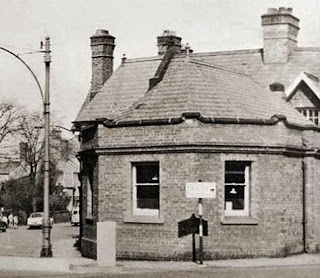On the morning of Friday 26th June 1896 a police constable who was walking his beat in Athol Street was accosted by a frantic woman who begged him to come to a house in New Hedley Street as a small child had been attacked by his father. On arrival there he found the prostrate body of two and a half year old Andrew Larkin, blood pouring out of his head.
Also in the room were Andrew's mother, three other children including a baby just a few weeks old and Mrs Rawley, the landlady of the house. She shouted out 'that is the man' as Andrew's father, also called Andrew, went to leave through the back door. On seeing the police officer he came back and handed himself over, saying 'Oh, I was going to the police station.' 31 year old Larkin was taken in a wagon to the detective office in Dale Street where he made no reply on being charged with wilful murder.
Mrs Larkin explained that earlier in the year her husband had been admitted to the workhouse hospital suffering from acute melancholy mania. He remained there two weeks but even after he was released Mrs Larkin often heard him tell the children that they would be better off in heaven.
Larkin had been out all night prior to the murder, his whereabouts unknown. On returning at 9am he went to the room where his family slept and set about his son, of whom he was particularly attached to, with a hatchet. Mrs Larkin managed to pin him down on the bed and screamed out for help, leading to Mrs Rawley coming to her aid and allowing her to take the baby downstairs and then help the other children to safety.
Whilst awaiting his trial Larkin told doctors that some imaginary person was about to take his life hence him lashing out. He appeared before Mr Justice Cave at the Liverpool assizes on 31st July, where medical evidence proved he was not conscious of his actions at the time. He was then ordered to be detained at Her Majesty's pleasure and spent 42 years in Broadmoor, where he died of pneumonia in 1938.

























